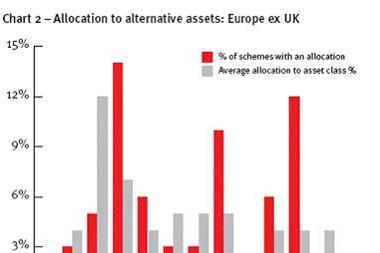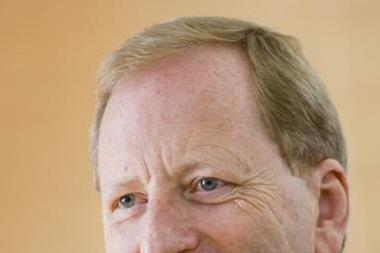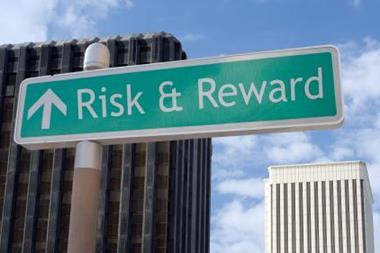The world is experiencing a wake-up call to overhaul its institutions, systems and attitudes, claimed the World Econommic Forum’s founder
Founder and executive chairman Klaus Schwab said ‘we cannot sidestep our responsibility to work together to rebuild shattered economies and institutions’, in his opening address to world leaders gathered in Davos, Switzerland.
Below is the full text of the speech:
Welcome to the World Economic Forum Annual Meeting 2009 – a very special event. What we are experiencing is the birth of a new era, a wake-up call to overhaul our institutions, our systems and, above all, our thinking and our actions, and to adjust our attitudes and values to the needs of a world which rightly requires a much greater degree of responsibility and accountability.
People have labelled this crisis as the worst ever and in many other catastrophic terms. Here we do not want to hear about such statements again, even if they are true. We want to concentrate on how we can move out of this crisis and how we can shape the post-crisis world in a constructive manner.
Today, people from every corner of the globe ask how it was possible that decisions could be taken, led by greed or incompetence and with no effective oversight - decisions that had terrible consequences, not only for the global economy but also for real people, who have lost their pensions, their homes or their jobs. They feel bewildered, confused, scared and angry. They may not understand what went wrong but they are clear that their leaders have let them down. They now look to those leaders – corporate, political and societal – not only to say sorry but to repair the damage to their families and communities. Gathered here are many of the world’s most influential leaders. We cannot sidestep our responsibility to work together to rebuild shattered economies and institutions.
To be concrete, here are the five specific objectives for us to achieve over these five days.
First, we will support governments, and particularly the G20, in their efforts to address the systemic risks in the financial systems to stabilize and relaunch the economy. We have worked together with the respective governments to make sure that all relevant issues are integrated into our discussions and that we can create here – midway between the G20 Summits in Washington last November and in London next April – a true global multistakeholder partnership supporting bold but necessary actions and policy changes.
In this respect, the financial community, which is well represented here and which will remain an essential factor of economic growth, is not only part of the problem, but is also an indispensable part of the solution. And the causes are not just relegated to one community. We are all in some way responsible for not recognizing the risks of a world completely out of balance. We should have listened much more to those who saw the signs on the wall, and to those who also spoke out here in this room.
Denial of the unpleasant or politically inconvenient truth combined with herd instinct caused us to rely on systems which were unrealistic and unsustainable and which, in addition, were undermined and abused by some who acted in unethical and fraudulent ways. What we need now is not only to look back and conduct a thorough assessment of the systems failures and the mistakes we made but, more importantly, to look forward and mobilize all people with one mission in mind: to rebuild trust not only based on more liquidity in the system but also based on the fundamental pillars of honesty, transparency and predictability.
The second objective for our Meeting is to make sure that we look at our world in a holistic, systemic way. The financial and economic crisis is not the only issue that needs a global multistakeholder response. In our Global Risks 2009, we identified 36 risks that must be addressed simultaneously if we want to avoid stumbling from one crisis to another and ending up in a scenario of enduring global chaos. We will deal with practically all of these issues here. This Annual Meeting has been prepared by our Global Agenda Councils, 700 leading experts who met in Dubai in November to define an integrated global agenda.
The third objective of this Annual Meeting is to start a year-long process to help design the systems and institutions that the world needs to really cooperate and to confront global challenges in a much more proactive way. To do so, we must consider the significant changes which have occurred since World War II. Today, we have to confront a much higher degree of complexity and time pressure: we have to recognize the shifts of political power from West to East and from North to South; we have to incorporate much more expertise and knowledge into our global decision-making; we have to use the force of “social networking” as an empowerment tool; we have to listen more intensively to the next generation, our Young Global Leaders. All these imperatives will be part of a year-long initiative launched during this Meeting, engaging all Forum communities.
To provide a concrete opportunity for governments to demonstrate the will for global cooperation, not only rhetorically but also effectively and concretely, this Annual Meeting will host a summit of trade ministers, and we all hope we can beat the 1930s by coming together instead of falling apart.
The fourth objective of this Annual Meeting is to better shape the ethical value base for business, highlighting a clear differentiation between industrial and service companies that provide true value to society and those that make money through paper transactions and speculation. Profit is a major driver of business, but it is clear that it cannot be profit at all costs and that self-indulgence cannot replace reasonable competitive remuneration. Since the founding the World Economic Forum in 1971, when I defined in a book the Stakeholder Theory, our activities have been based on the premise that business ultimately has to serve not just shareholders but all stakeholders. It must serve society at large. Entrepreneurship remains the key driver of wealth generation and the market economy is a fundamental pillar of a free and democratic society, but the market forces have to be embedded into an enhanced and globally better coordinated regulatory framework.
The moral reformation – not only of business but of society at large – cannot result from just the revival of fundamental principles such as solidarity or modesty. What we really need is to reflect on how we want the world to be in 10, 20 and 30 years. Over half of the people on earth are under 25 years old. How should they live when they are our age? Shaping the post-crisis world means, above all, to incorporate ecological, global and inter-generational accountability and responsibility into everything we are undertaking, individually and collectively.
What I am saying today is consistent with what I have been saying for many years, but there is one decisive difference: today we have reached a tipping point, which leaves us only one choice – change or face continued decline and misery.
The fifth and final objective of this Annual Meeting is to reconstruct the global economy. Yes, we are in the midst of an enormous challenge but we are also at the threshold of many promising breakthrough technologies, as the strong presence of our Technology Pioneers demonstrates. Today, a great opportunity exists to generate a new wave of economic growth based on technologies, products and services directly meeting societal needs in eco-efficiency, in healthcare, in transportation, in people empowerment and many more.
What the world needs most today is integration and cooperation. We will never meet the challenges if we want to do it all alone. The purpose of the World Economic Forum is not to take decisions but to act as a force for reflection and connection, connecting ideas, proposals, stakeholders, countries and cultures.
In conclusion, I hope that with your engagement and leadership, Davos can act as it has done already a century ago, as a healing and revitalizing force, as a magic mountain, as a true sanatorium for the world, its economy and its society.



















